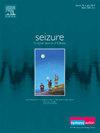青少年癫痫患者斋月禁食:癫痫发作控制和行为结果。
IF 2.7
3区 医学
Q2 CLINICAL NEUROLOGY
引用次数: 0
摘要
目的:关于斋月禁食对青少年癫痫(AWE)发作控制效果的数据很少。在这个青少年群体中也遇到了一些心理行为问题。方法:在这项前瞻性研究中,对2024年斋月期间完成斋戒的AWE患者在斋月期间(斋月前一个月)和斋月期间的每种类型的癫痫发作频率进行评估。要求在两个月结束时回答三份问卷。采用患者健康问卷(PHQ-9)、改良外显攻击量表(MOAS)和Barratt冲动性简易量表(BIS-11-SF)分别评估抑郁、攻击和冲动性。结果:共评估120名AWE患者,中位年龄15岁,IQR 13-17。与沙班相比,斋月期间局灶性癫痫发作频率有统计学意义的降低(P 0.009),以及全面性非运动(缺席)癫痫发作(P 0.027)。斋月期间moas总分显著低于斋月期间(P 0.003), BIS-11-SF非计划性冲动得分显著低于斋月期间(P 0.005)。结论:斋戒斋月能较好地控制包括局灶性和广泛性非运动性(失神)发作在内的多种发作类型,以及攻击性和非计划性冲动等心理行为方面的发作,且对AWE患者的其他发作类型和抑郁无加重作用。本文章由计算机程序翻译,如有差异,请以英文原文为准。
Ramadan fasting in adolescents with epilepsy: Seizure control and behavioral outcome
Objectives
Data about the effect of Ramadan fasting on seizure control among adolescents with epilepsy (AWE) is scarce. Several psycho-behavioral problems have also been encountered in this teenage group. This study aimed to assess seizure frequency and behavioral outcomes after Ramadan fasting in a sample of AWE
Methods
In this prospective study, AWE who completed fasting during Ramadan 2024 were evaluated regarding the seizure frequency of each type during Shaban (the month immediately preceding Ramadan) and Ramadan. Three questionnaires were requested to be answered at the end of two months. They were Patient Health Questionnaire (PHQ-9), Modified Overt Aggression Scale (MOAS), and Barratt Impulsiveness Scale–Short Form (BIS-11-SF) for assessment of depression, aggression, and impulsivity, respectively
Results
One hundred twenty AWE, with a median age of 15 and IQR 13–17, were evaluated. There was a statistically significant reduction in seizure frequency regarding focal onset seizures during Ramadan compared to Shaaban (P 0.009), as well as generalized non-motor (absence) seizures (P 0.027). The MOAS-total scores significantly reduced during Ramadan than Shaaban (P 0.003), as well as the scores of non-planning impulsivity of BIS-11-SF (P 0.005). On the other hand, depression assessed by PHQ-9 did not significantly differ between the two months
Conclusion
Fasting Ramadan is associated with better control of multiple seizure types, including focal and generalized-onset non-motor (absence) seizures, besides psycho-behavioral aspects of aggression & non-planning impulsivity, without worsening of other seizure types nor depression, among AWE.
求助全文
通过发布文献求助,成功后即可免费获取论文全文。
去求助
来源期刊

Seizure-European Journal of Epilepsy
医学-临床神经学
CiteScore
5.60
自引率
6.70%
发文量
231
审稿时长
34 days
期刊介绍:
Seizure - European Journal of Epilepsy is an international journal owned by Epilepsy Action (the largest member led epilepsy organisation in the UK). It provides a forum for papers on all topics related to epilepsy and seizure disorders.
 求助内容:
求助内容: 应助结果提醒方式:
应助结果提醒方式:


